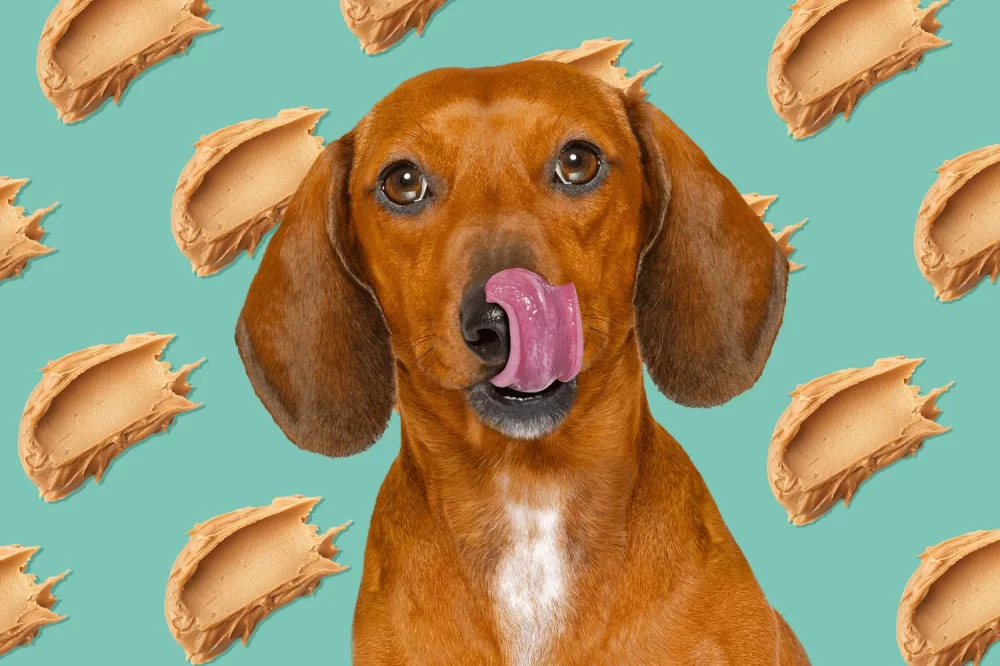Can Dogs Eat Peanut Butter in Moderation? Everything You Need to Know
Peanut butter is a favorite treat for many people, and it’s easy to understand why. It’s creamy, delicious, and can be used in so many recipes or simply enjoyed on its own. If you’re a dog owner, you’ve probably wondered: "Can my dog eat peanut butter?" It’s a common question, and the good news is that yes, dogs can eat peanut butter in moderation. However, there are several important factors you should consider before sharing this tasty snack with your furry friend.
What’s in Peanut Butter?
Before diving into whether peanut butter is safe for your dog, it’s important to understand what’s inside this popular food. Peanut butter is made from ground peanuts, and it often contains additional ingredients like salt, sugar, and oils. Some brands also add preservatives or artificial sweeteners, which can be harmful to dogs. So, while plain, unsweetened peanut butter can be a great occasional treat, the ingredients can vary from brand to brand, which is something to keep in mind.
Is Peanut Butter Safe for Dogs?
In most cases, plain peanut butter is safe for dogs to eat in small amounts. Peanuts themselves are not toxic to dogs, and peanut butter is rich in protein and healthy fats, which are beneficial to a dog's diet when consumed properly. However, there are some potential risks that every dog owner should be aware of.
1. The Issue with Xylitol
One of the biggest dangers of peanut butter for dogs is xylitol, a sugar substitute commonly found in sugar-free products. While humans can safely consume xylitol, it’s extremely toxic to dogs, even in small amounts. Xylitol can cause a rapid insulin release in dogs, which can lead to a dangerous drop in blood sugar levels (hypoglycemia). This can result in symptoms like vomiting, loss of coordination, seizures, and, in severe cases, liver failure. Therefore, it’s crucial to always check the label of any peanut butter you buy to ensure it does not contain xylitol.
2. High Fat Content
Peanut butter is naturally high in fat, and while dogs need fats in their diet, too much can lead to obesity, pancreatitis, and other health problems. Feeding your dog large amounts of peanut butter on a regular basis can contribute to weight gain, which in turn can cause joint problems, heart disease, and diabetes. Always be mindful of how much peanut butter you’re giving your dog and consider it a treat, not a regular part of their diet.
3. Salt and Sugar Additives
Some peanut butter brands add salt and sugar to enhance flavor, but these added ingredients aren’t ideal for your dog. Excessive salt can cause dehydration and kidney issues, while sugar contributes to obesity and tooth decay. If you want to give your dog peanut butter, it’s best to choose a natural, unsweetened version without any added salt or sugar.
4. Potential Allergies
Though rare, some dogs may be allergic to peanuts. If you’re giving your dog peanut butter for the first time, start with a small amount to see how they react. Watch for signs of an allergic reaction, such as itching, swelling, or gastrointestinal upset. If your dog exhibits any of these symptoms, stop feeding them peanut butter immediately and consult your vet.
Benefits of Peanut Butter for Dogs
When given in moderation, peanut butter can be a fun and beneficial treat for your dog. Here are some of the potential benefits:
- Protein Boost: Peanut butter is an excellent source of protein, which is essential for muscle growth and overall health in dogs.
- Healthy Fats: The fats in peanut butter are beneficial for maintaining a shiny coat and supporting brain function.
- Encourages Mental Stimulation: If you stuff peanut butter inside a dog toy or Kong, it can provide hours of entertainment and mental stimulation for your dog, keeping them occupied and happy.
How Much Peanut Butter Can Dogs Eat?
The key to feeding your dog peanut butter is moderation. Peanut butter should be treated as an occasional treat rather than a regular part of your dog’s diet. As a general rule, a small dog can have about half a teaspoon of peanut butter, while larger dogs can enjoy a teaspoon or two. Keep in mind that these amounts should not exceed 10% of your dog’s daily caloric intake. Too much peanut butter, even without harmful additives, can still lead to weight gain and digestive issues.
Creative Ways to Serve Peanut Butter to Your Dog
If you’re looking to add a little fun to treat time, here are a few creative ways to serve peanut butter to your dog:
- Stuff a Kong toy: Fill a Kong with peanut butter and freeze it for a long-lasting, fun treat.
- Mix it with other healthy treats: You can mix peanut butter with other healthy ingredients like pumpkin or plain yogurt to create a delicious snack.
- Spread on dog biscuits: If you want to give your dog a special treat, spread a thin layer of peanut butter on their favorite dog biscuits.
Signs Your Dog Has Eaten Too Much Peanut Butter
While peanut butter can be a healthy snack, it’s important to recognize the signs that your dog may have had too much. If your dog starts to show any of the following symptoms, it could be a sign that they’ve consumed too much peanut butter:
- Excessive drooling
- Vomiting or diarrhea
- Changes in energy levels (lethargy or hyperactivity)
- Weight gain
If you notice any of these symptoms after feeding your dog peanut butter, it’s important to adjust the amount you’re giving them or eliminate it from their diet entirely. If symptoms persist or worsen, consult your veterinarian.
Is Peanut Butter Right for Every Dog?
While most dogs can enjoy peanut butter in moderation, not all dogs should have it. If your dog has any underlying health issues, such as pancreatitis, kidney disease, or obesity, it’s best to avoid peanut butter or discuss it with your veterinarian first. Certain breeds or individual dogs may also have sensitivities to certain foods, so it’s always wise to err on the side of caution.
Conclusion
Peanut butter can be a safe and enjoyable treat for your dog when given in moderation and as part of a balanced diet. The key is to choose a peanut butter that is free of harmful additives like xylitol, salt, and sugar, and to serve it in small amounts. Always monitor your dog’s reaction to new foods, and if you have any concerns, consult with your veterinarian to ensure peanut butter is a good choice for your furry friend. With proper care and attention, peanut butter can be a delicious and healthy addition to your dog’s treat repertoire.












